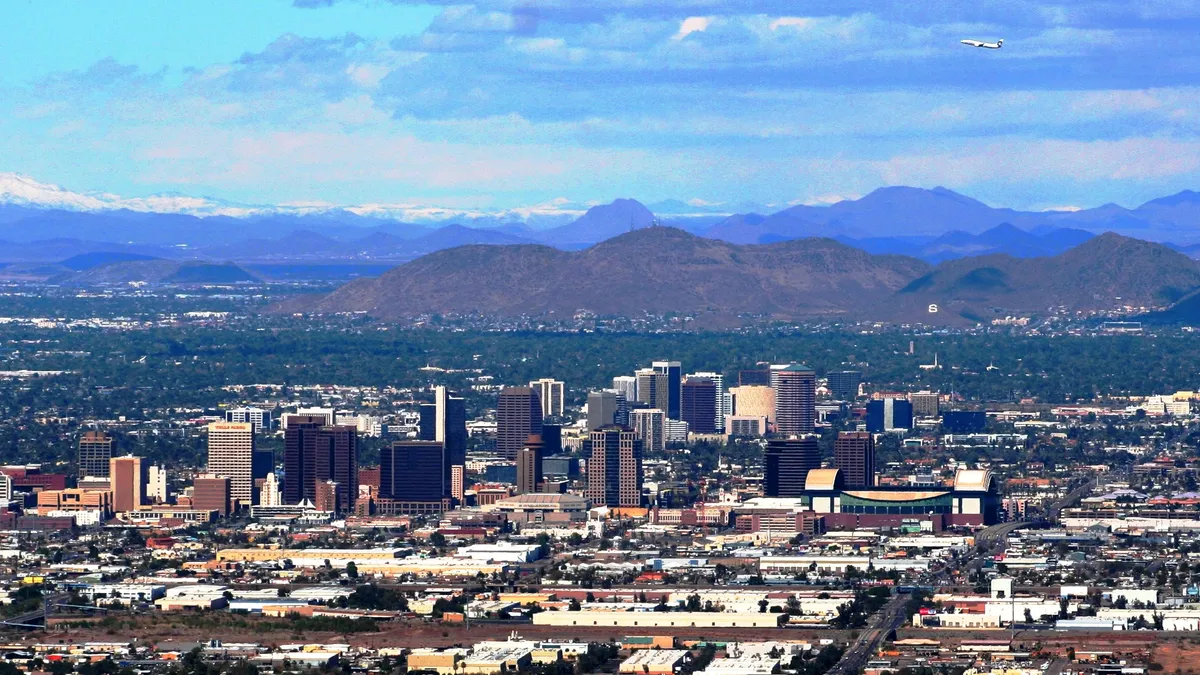Dive Brief:
- Arizona utility Commissioner Andy Tobin has called for an audit of the costs and benefits associated with raising the state's clean energy standard, including requiring utilities to get 80% of their electricity from renewables and nuclear by 2050 and deploy 3000 MW of energy storage by 2030.
- Tobin's Arizona Energy Modernization Plan also calls for reforms in utility planning processes, policies to boost energy efficiency, electric vehicles and biomass, and the deployment of 3 GW of storage by 2030.
- Tobin wants the Residential Utility Consumer Office to conduct "a full audit and benefit-cost analysis" of the Arizona Energy Modernization Plan, specifically comparing it to costs associated with utilities' current integrated resource plans and 15-year forecasts.
Dive Insight:
There is significant interest in bringing a cleaner energy mix to Arizona, but regulators want to know the costs and how they stack up against utilities' current plans.
In a letter last week, Tobin requested RUCO conduct a full analysis of his proposal, but added that the analysis should not be seen as slowing down a possible decision. His plan includes a "Clean Peak" to require utilities to deliver an increasing portion of their renewable energy during peak electricity demand hours. A similar proposal was made the state consumer advocate two years ago.
Tobin has asked the commission to approve the energy plan during the next ACC public meeting, either Thursday at a contingency meeting or at the ACC's March 13 open meeting.
Another clean energy effort, which would focus on renewables and not nuclear, is being pushed by a group of environmental and public health advocates. The groups are seeking to place a measure on the upcoming November election ballot that would require Arizona utilities to reach 50% renewable energy by 2030. But major utility Arizona Public Service's parent company recently revealed that they were funding an opposition group to that ballot initiative.
Arizona has already met its 15% RPS standard, and utility energy efficiency targets ending in 2020. Now clean energy advocates are worried the state's utilities appear to be focusing on more natural gas investment. APS wants to add 5.3 GW of gas generation by 2030, more than doubling its gas capacity, according to its latest IRP filed 10 months ago.















